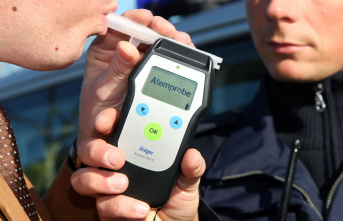1918: Soviet revolutionary Leon Trotsky warned Western creditors that they were aghast by the Bolsheviks repudiation Russia's external debt.
He reminded them of the fact that the dismissal of Tsarist-era Tsarist debt was a central manifesto of 1905's failed uprising. Russia is on the verge of default more than 100 years later. But this time, there was no warning.
Few people expected that the Kremlin's invasion in Ukraine would provoke such a furious response from the West. The West has effectively cut Russia off from all global financial and payment networks.
These are Russia's most significant debt events of the last century
1918: REPUDIATION
Russia, which borrowed heavily to finance industrialization and railway constructions, was the largest international net debtor just before the 1917 revolution.
The Bolsheviks, however, saw the Tsarist industrialisation drive to fail the working class and so they repudiated all foreign loans.
"They stated that they were not paying, and that even if we could we wouldn't pay. That was a political statement," stated Hassan Malik (senior sovereign analyst at Loomis Seeles) and author of "Bankers and Bolsheviks, International Finance and The Russian Revolution".
Despite Trotsky’s warning, the default shocked the entire world, particularly France, whose citizens and banks suffered huge losses.
Malik stated that investors didn't consider it serious because they believed it would be so harmful. He estimated the debt to be worth at most $500 billion at 2020 prices, and possibly more.
Moscow was unable to recognize some of this debt until the mid-1980s.
1991: USSR TO RUSSIA
Russia stopped servicing a portion of its overseas debt inherited from Soviet countries after 1991's disintegration of the USSR.
Andrey Vavilov was Russia's deputy finance Minister between 1994 and 1997. His estimate of Russian Federation's Soviet-era debt was approximately $105 billion at the end 1992. Russia's own debt is $2.8 billion.
Vavilov, in his book "The Russian Financial Meltdowns and Public Debt", wrote that the Paris Club accepted the inherited debt. Russia was able to transfer major Soviet-era debt payments to the tenth decade after it agreed to restructuring $28 billion of its debt with the group.
With a financial crisis looming, however, it will take until 2017 for the Communist-era arrears to be cleared.
1998: ROUBLE DEATF DEFAULT
In 1997, Russian export revenues were cut by falling oil prices. Vavilov claims that the external debt, which was close to 50% of GDP in 1995 had increased to 77% by 1998. He blames heavy IMF/World Bank loans.
Russia had very low tax revenues and relied heavily on GKO, short-term Treasury bills to pay its expenditures. It found it increasingly difficult to roll them over, and soon spent increasing amounts to defend its rouble.
"The more that the government insists it will stand by the currency and pay its debts, then the more investors conclude it is time to sell," Chris Miller wrote in his book "Putinomics": Power and Money in a Resurgent Russia.
The IMF had put together a $22.6 million aid package a month prior to the default. However, "the market was expecting an announcement of an additional $20billion," Martin Gilman, the IMF representative at Moscow at that time, wrote in his book, "No Precedents, No Plans: Inside Russia's 1998 default".
Russia decided to throw in the towel on August 17, 1998. It devalued the rouble and announced it couldn't pay its rouble debt.
Russian banks that had large foreign currency exposure and invested heavily in Tbills quickly went bankrupt.
2022: A FORCED DEFAULT
Moscow continued Eurobond payments despite its dire financial situation in 1998. It may not default, but it does have plenty of cash.
The Kremlin suggests that foreign creditors open Russian bank accounts in order to receive payments in other currencies than the dollar to avoid sanctions.
Investors from non-U.S. countries can agree in principle, but U.S. bondholders are not allowed to after the May expiration of a U.S. Treasury license allowing them Russian payments.
Miller, the author of "Putinomics", stated that Russia would fight tooth-and-nine to avoid a Eurobond default.
He said that officials from the central bank and finance ministry had built their careers around stabilizing Russia as a creditor that can trust in international markets.
"It is a part of their identity to ensure that a default does not happen again."
Date Of Update: 01 June 2022, 07:35










